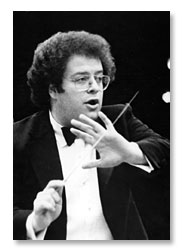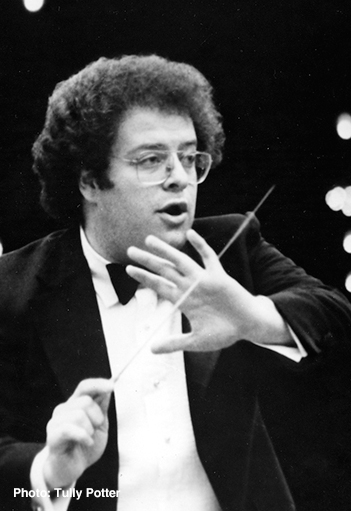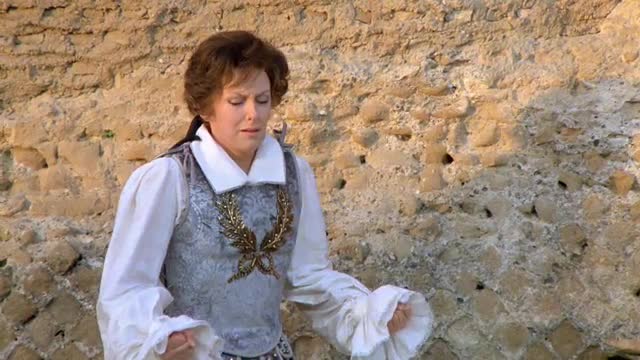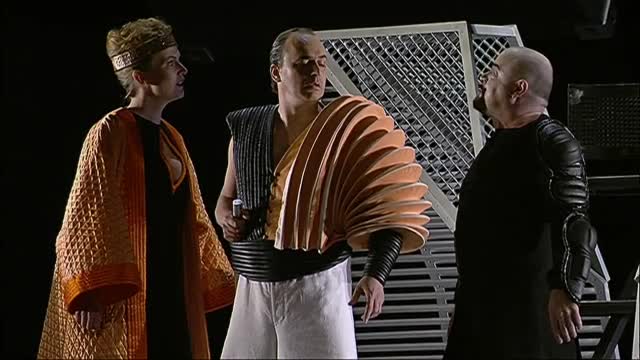

James Levine was born into a musical family: his grandfather on his mother’s side had been a cantor in a synagogue, his father was a violinist and dance-band leader, and his mother was an actress. He began to play the piano at the age of four, and made his concert debut when he was ten, performing Mendelssohn’s Piano Concerto No. 2 with the Cincinnati Symphony Orchestra. He went on to study orchestral repertoire, style and interpretation as well as chamber music with Walter Levin, the first violinist of the LaSalle String Quartet; received piano lessons from Rudolf Serkin at the 1956 Marlboro Music Festival; and from Rosina Lhévinne at the Aspen Music School from 1957 onwards. Levine also received conducting tuition from Wolfgang Vacano at Aspen. He entered the Juilliard School in 1961, to study conducting with Jean Morel and piano with Lhévinne, graduating in 1964 and joining the Ford Foundation’s American Conductors Programme run in association with the Baltimore Symphony Orchestra. This brought him into contact with Alfred Wallenstein, Max Rudolf and Fausto Cleva, as well as most importantly George Szell.
Szell engaged Levine to work with himself and the Cleveland Orchestra, initially during the 1964–1965 season as an apprentice and from 1965 to 1970 as the orchestra’s assistant conductor. He attended Szell’s rehearsals, concerts and recording sessions, and studied operatic and symphonic scores with him. During his period at Cleveland Levine also organized the University Circle Orchestra of the Cleveland Institute of Music, taught and conducted at Aspen from 1966 to 1970, and conducted the student orchestra of Oakland University’s summer music institute at Meadow Brook, Michigan (the summer home of the Detroit Symphony Orchestra) between 1967 and 1969. His repertoire included much opera as well as symphonic music.
Levine’s breakthrough year was 1970 when he made successful appearances with the Philadelphia Orchestra during its summer residence at the Robin Hood Dell, and with the Welsh National and San Francisco opera companies, conducting Aida and Tosca respectively. He was invited to conduct the Metropolitan Opera in Tosca the following year, and the Chicago Symphony Orchestra in Mahler’s Symphony No. 2 at the Ravinia Festival. The success of these and other engagements resulted in his being offered and accepting three permanent appointments from 1973: as principal conductor of the Metropolitan Opera, director of the Ravinia Festival and director of the Cincinnati May Festival. Two years later he was promoted to the post of music director of the Metropolitan and made the first of several appearances at the Salzburg Festival, conducting the London Symphony Orchestra.
Throughout the 1980s and 1990s Levine appeared regularly at the Bayreuth Festival conducting Wagner’s Ring cycle and Parsifal. In 1986 he was named as the Metropolitan Opera’s first-ever artistic director, a position that means he spends seven months a year with the company. Although this leaves a very limited amount of time for engagements elsewhere, Levine guest-conducts with the major European orchestras such as the Berlin and Vienna Philharmonics, the Dresden Staatskapelle and the Philharmonia in London, as well as the Boston Symphony Orchestra in the USA. He was appointed chief conductor of the Munich Philharmonic Orchestra in succession to Sergiu Celibidache in 1999, a post which he held until 2004, when he became chief conductor of the Boston Symphony Orchestra, following Seiji Ozawa.
One of Levine’s greatest accomplishments has been his work at the Metropolitan Opera, which he helped to build into one of the world’s finest and most consistent opera companies. The repertoire which he conducted covers all the principal operatic schools as well as several new works by American composers such as John Corigliano and John Harbison. He inaugurated regular television broadcasts from 1977 onwards, founded the Young Artist Development Programme in 1980, returned Wagner’s complete Ring cycle to the repertoire in 1989 (in the first integral cycles to be given in fifty years), and reinstated recitals and concerts with Metropolitan Opera artists, a former Metropolitan tradition. He had developed the company’s orchestra into one of the best in America and toured with it throughout America and Europe, as well as presenting a regular series of symphony concerts at Carnegie Hall. Such devotion to a single institution for so long a period and at so high a standard has few historical or contemporary parallels.
Levine’s conducting style is clear and expansive. Some of his early performances and recordings (such as the Mahler symphonies) possessed a notable sense of drive, although this had been replaced by a more reflective character. His discography, which is large and features many video as well as sound recordings, is equally divided between opera and symphonic works. Levine eloquently summed up both his life’s work and his general attitude to music: ‘I sometimes say that music chose me because I can’t remember my life without it… I feel music gave me a real continuum of creative, constructive life… As I look around at other professions in the world, it seems that to have a life in music is the most beautiful life I could imagine.’.
© Naxos Rights International Ltd. — David Patmore (A–Z of Conductors, Naxos 8.558087–90).
| Title | |
| MOZART, W.A.: Clemenza di Tito (La) (Studio Production, 1980) | |

|
MOZART, W.A.: Clemenza di Tito (La) (Studio Production, 1980)
Composer:
Mozart, Wolfgang Amadeus
Artists:
Concert Association of the Vienna State Opera Chorus -- Eisenberg, Philip -- Howells, Anne -- Levine, James -- Malfitano, Catherine -- Neblett, Carol -- Rydl, Kurt -- Tappy, Eric -- Troyanos, Tatiana -- Vienna Philharmonic Orchestra
Label/Producer: UNITEL |
| WAGNER, R.: Gotterdammerung (Bayreuth Festival, 1997) | |

|
WAGNER, R.: Gotterdammerung (Bayreuth Festival, 1997)
Composer:
Wagner, Richard
Artists:
Bayreuth Festival Chorus -- Bayreuth Festival Orchestra -- Fryer, Sarah -- Ginzer, Frances -- Guyer, Joyce -- Halfvarson, Eric -- Levine, James -- Naef, Yvonne -- Polaski, Deborah -- Schmidt, Wolfgang -- Schwanewilms, Anne -- Schwarz, Hanna -- Struckmann, Falk -- Svenden, Brigitta -- Turner, Jane -- Wlaschiha, Ekkehard
Label/Producer: UNITEL |
